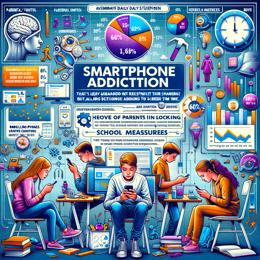Image created by AI
Sweeping Changes in U.S. Education: DOGE Terminates $900M in Research Contracts
In an unexpected move that has sent shockwaves through the education sector, the U.S. Department of Education has cancelled nearly $1 billion worth of research contracts. This decision was driven by the Department of Government Efficiency (DOGE), a new body overseen by tech mogul Elon Musk, known for his leadership at X. On Monday, DOGE announced the termination of 89 contracts totaling $881 million, along with 29 "DEI training grants" adding up to $101 million.
The cuts have effectively dismantled the Institute of Education Sciences (IES), the branch tasked with collecting comprehensive national data on students and schools. This drastic reduction not only curtails ongoing research but also casts long shadows on the future abilities of policymakers and educators to access reliable data—a cornerstone for informed decision-making in education.
Key educational tools such as the National Assessment of Educational Progress and the College Scorecard have been spared, preserving some capabilities for assessment and decision-making. The College Navigator, a platform offering insights into university offerings, remains operational as well. However, numerous other projects like the What Works Clearinghouse and the School Pulse Panel, crucial for administrative and educational planning, were abruptly halted.
The internal repercussions are stark. Despite no immediate layoffs at the IES as per last reports, there is an overarching expectation of job notices being issued imminently. DOGE’s stance is clear: the legality of these cost-cutting measures is not a concern in their strategic decisions.
This development comes amidst broader controversies surrounding federal approaches to education under the Trump administration, which has been vocal in its criticism of the Education Department. Furthermore, concerns escalate as the DOGE team reportedly gains access to extensive databases containing sensitive student information.
The implications of these cuts are profound. As articulated by Michael Itzkowitz, creator of the College Scorecard, diminishing the scope of educational research risks reducing American competitiveness on a global scale. He highlights the disparity in consumer information available for buying a simple appliance versus choosing an educational institution, stressing the necessity of robust educational data to sustain informed choices in higher education.
As these changes unfold, the education sector is left reeling, assessing the potential impacts on policy, innovation, and the quality of education in the United States. The long-term effects of these decisions could redefine the landscape of educational research and its application, making the need for dialogue and analysis more critical than ever.










